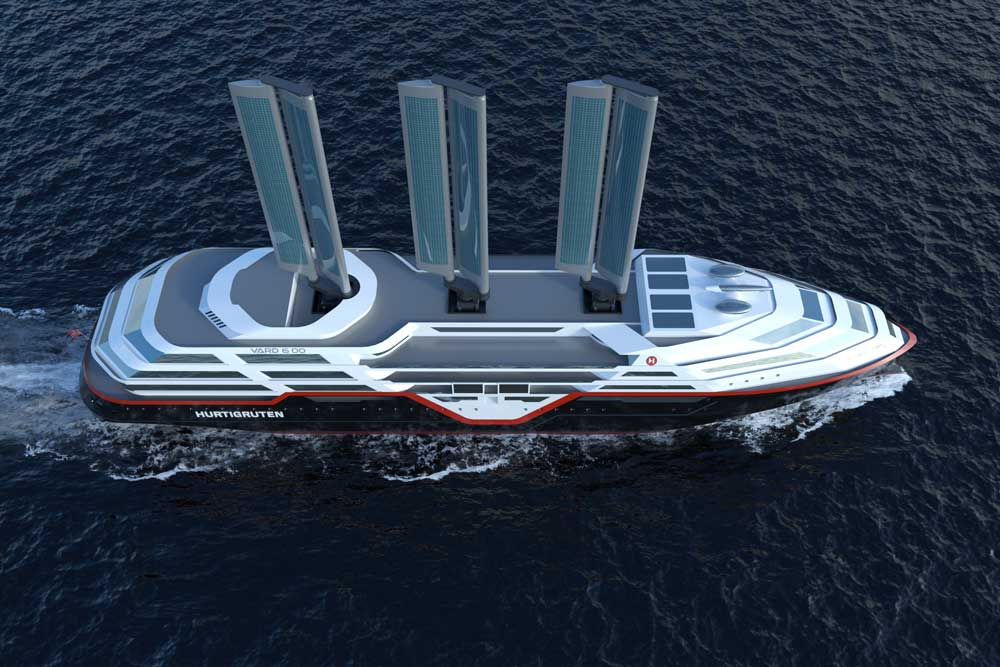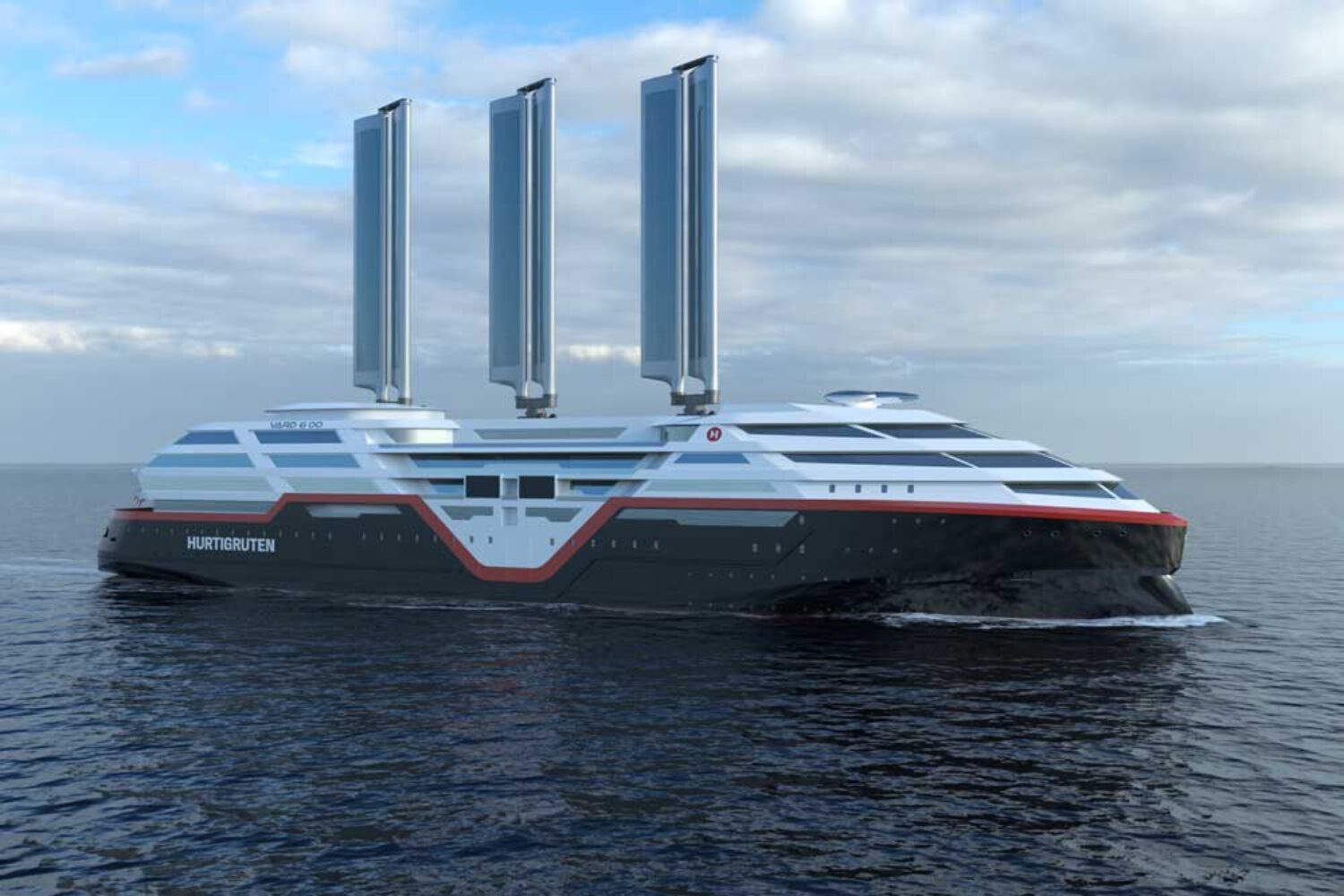The cruise shipping company Hurtigruten has published an updated design of the “Sea Zero” project.
The cruise ship, which will be launched in 2030, will be able to operate completely emission-free. “Sea Zero” is still in the research phase, but is making good progress according to a statement from the company. The project was first presented in October 2022 and plans have progressed since then. The design comes from the Norwegian shipbuilding company Vard.
“Sea Zero” should be able to sail completely emission-free in normal operation thanks to large batteries, sails and “other innovative solutions”. Energy consumption is to be reduced by 40 to 50% compared to conventional designs.
“The cruise industry is a major polluter and it is crucial that we take important steps now to reduce emissions,” said Hurtigruten CEO Hedda Felin.
Sails to save up to 10% emissions
Hurtigruten emphasized the importance of the sails that will be installed on the ship. They will be able to be raised and lowered as required, and “Sea Zero” will save up to 10% emissions in the long term thanks to this technology. A further 2 to 3% is to be saved by solar panels.
“We still see significant energy savings from retractable sails with solar panels, but this requires thorough studies, including model tests, which will be carried out in the coming months,” said Gerry Larsson-Fedde, Chief Operating Officer of Hurtigruten. The design has been replaced by a more mature type called “Oceanwings”, which is already in use on cargo ships – for example on the RoRo freighter “Canopée“.

Up to 60 MWh of electricity on board
According to Hurtigruten, the ship is planned with counter-rotating propellers as its main propulsion system, and the electricity storage units will have a capacity of around 60 MWh. Two retractable bow thrusters at the stern will ensure optimal maneuvering in port operations and provide increased safety through redundancy.
“The central part of the project is to reduce energy consumption. The aim is to consume significantly less energy than today’s ships, which requires innovative solutions,” says Larsson-Fedde.
Another measure is air lubrication of the hull, where air bubbles are pumped under the hull to reduce resistance. This could lead to energy savings of 5 to 10%. In conjunction with a modern hull design, advanced antifouling coatings and regular hull cleaning, water resistance can be significantly reduced, the shipping company said. Preliminary results also show that better ventilation and insulation systems, as well as advanced energy management, can lead to significant energy savings.
Hurtigruten: “Raising awareness of sustainability”
So-called “intelligent cabins” will allow guests to control their own energy consumption. Guests will be able to control heating and ventilation via an app and a screen in the cabin and, at the same time, see how much energy is being consumed. “This will increase guests’ awareness of sustainability,” says Hurtigruten.
Cruise shipping is still one of the maritime industries with the highest emissions and is therefore regularly criticised. NABU recently compared the shipping companies in a ranking. Hurtigruten came out on top – but still fell short of expectations.













